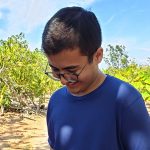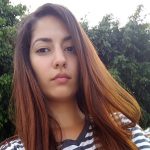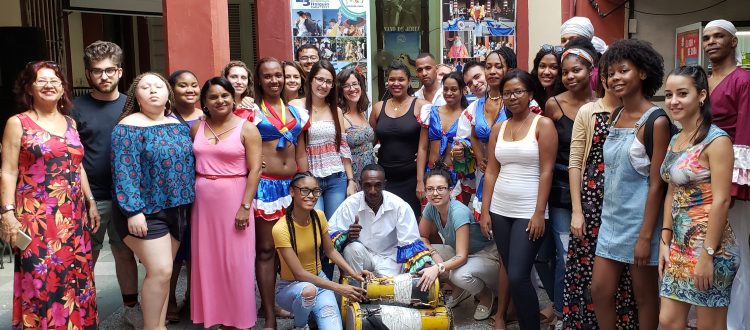A Meaningful Impact for SUNY Geneseo and the Universidad de Holguín
On January 4, 2019, SUNY Geneseo and Universidad de Holguín students met for a collaborative learning experience from Holguín professors and a visiting SUNY Geneseo professor. The two-week January term course represented a first step in building a stronger relationship between both institutions. The first week was capped with both University presidents signing a memorandum of understanding, the first Cuba-US agreement for both institutions. SUNY Geneseo student, Rayan Ramirez, and Holguín student, Yilennis Rodríguez Ramírez, reflect on being a part of this inaugural program.

Rayan Ramirez
My experience in Cuba was one that I will remember for a very long time.
It was one that was transformative and important to how I view my own cultural identity and how I view the field of Anthropology. As a mixed heritage person, I without a doubt learned to have a deeper appreciation for my Latin heritage. There were many moments on this trip where I felt as if I was part of a bigger community. This was mainly through language and cultural practices that pass the borders of other Latin countries. Additionally, my love for Latin American history was deepened too. Prior to this trip I had a relative interest in the study. However, after my time in Cuba I would really consider committing my academic study to Latin America.
Before this program I did not necessarily have any kind of connection toward the field of Anthropology besides taking a level 100 class in Freshman year. However, now I see the similarities between History and Anthropology. The terminology used took some getting used to but it – without a doubt – helped me in understanding certain things in Cuban culture. I think my ability to analyze issues from different viewpoints has not changed much. I feel like I have always had the ability to do so.
One thing that made me take a step back was a conversation that I had with a Cuban student. It really put things into perspective for me in terms of how people from both Cuba and the United States view one another. I found myself sharing a lot of similarities with Carlos. We talked about sports and government which really made us feel comfortable with one another. Young people in Cuba are not so different from us. They do all the same things young people in the US want to do. Go out, hangout with friends, study, dance, and enjoy life. I am more than thankful that I had the opportunity to experience that.
Seeing how normal Cubans go about their daily business really enlightened me. I think that staying in the accommodation spaces that we did helped with that process too. Talking to the owners of the Casa’s put things into perspective in terms of how these kinds of businesses are run. I’ve traveled abroad multiple times prior to this trip, but out of all those experiences my time in Cuba was special to me. Specifically, in the connections that were built over those two weeks.
I’ve made new friends both in Cuba and in the United States. I think that traveling apart from family is integral to any kind of growth. I think this is what made this experience so special for me. The trip was individualistic in a way that each person took something different out of the trip.
I would recommend this program to anyone who is trying to break out of the norms of traveling to major or European countries. I think it’s important to move away from countries that are advertised as safe and easy to get around. Not saying that Cuba is not safe but rather the country being relatively difficult to get around without an understanding of Spanish. It is important to step out of one’s comfort zone. It creates opportunities to broaden the mind and understand things differently.
Rayan A. Ramirez is a 3rd year History Major at SUNY Geneseo

Yilennis Rodríguez Ramírez
The first time I heard the phrase: One People, One Community, I was not aware of its true meaning. I always considered myself to be a person with a strong sense of self-awareness. I knew myself, or that was what I thought. It is amazing the way life changes people. It is not only time or space who define us, but other people.
This January, I met an outstanding group of US students. They were expected to learn about Cuban identity and other aspects related to this phenomenon. On the other hand, I was expected to foster my interpreting skills. The funny part of the story is that feedback did not think the same way.
I knew they would have thousands of questions and doubts. I am Cuban, piece of cake! I believed to be ready for their questions. However, as they started to inquire, I started to panic! What am I? Who am I? It is easy to try to answer these interrogatives using history, anthropology or so, but, why I am who I am nowadays? Well, let us say that it was a little bit harder to pull that out.
The more I attended their lessons on Cuban identity, traditions and customs, the more identified I felt with my own origins. I had never experienced what it is to see your own reality from other people`s eyes. This can be explained using an interesting analogy of seeing trough a new pair of glasses that fits this context just perfectly.
It is ironic how fate works. Almost 70 percent of Cubans try to follow patterns from abroad. They listen to American and European music, they try to imitate their fashion styles and follow their trends. Human beings are described as a complex machine, actually, we are nothing but basics. I would like to describe this statement with an image. A little child gets bored of playing with his toy and throws it away, another child comes and picks it from the floor. Jealousy can be good sometimes. It teaches us that “The grass looks greener on the other side” and “You never know the true value of things until you lose them”. The way these youngsters fell in love with my country made me wonder what was wrong with all the Cubans that do not see what they saw and what I now see every day. They taught me to appreciate my own music, religion, food, weather, etc. over any other.
Sharing with this group from Geneseo has been one of the most wonderful opportunities both institutions have ever given to me. I can only describe this opportunity as refreshing and extremely advantageous. It is nice to think that the result of healthy cooperation can bring this kind of outcomes to both parts. Now, I think I fully understand the true meaning of the phrase: One People, One Community.
Yilennis Rodríguez Ramírez is a 4th Year Foreign Languages Major at the Universidad de Holguín











